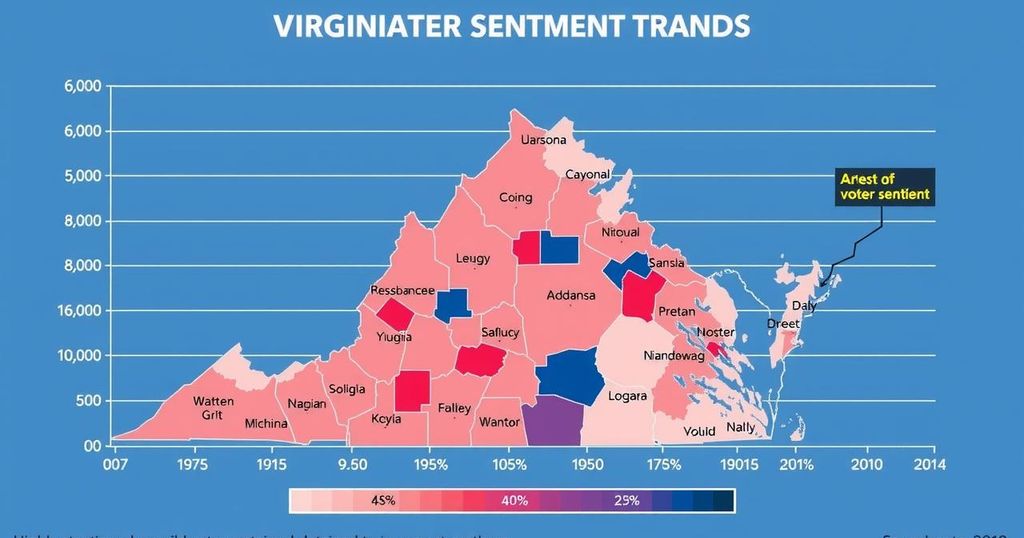Virginia’s Special Elections Reflect Stable Voter Sentiment Ahead of Gubernatorial Race

Virginia’s special elections resulted in Democrats maintaining their slim legislative majority, winning in two left-leaning districts, while a Republican candidate emerged victorious in a conservative area. These elections are seen as a precursor to the more pivotal gubernatorial race in 2025, where political dynamics may shift significantly, especially with incumbent Governor Youngkin facing a Democratic legislature and potential presidential aspirations.
The recent special elections in Virginia showcased no significant changes in voter sentiment, despite attracting considerable national scrutiny. Democrats successfully defended their narrow state legislative majority by clinching victories in two traditionally left-leaning districts, thus maintaining a slight edge in both the state Senate and House of Delegates. While these elections offered a glimpse into the political landscape, analysts believe the forthcoming gubernatorial race in 2025 will provide a more comprehensive understanding of voter inclinations following President Trump’s electoral successes in 2020.
As Virginia gears up for its gubernatorial election, which occurs in the year subsequent to presidential elections, all eyes are on Republican Governor Glenn Youngkin, who is facing a Democratic legislature. With indications that he may pursue a presidential candidacy in 2028, Youngkin’s final year in office may be shaped by the existing partisan dynamics. The special elections precede the state legislature’s sessions, which could further complicate the governor’s attempts to pass his proposed budget amendments aimed at providing economic relief to lower-income workers.
Despite the anticipated challenges, Youngkin’s proposals, which require substantial bipartisan backing, could serve as points of contention in the legislature. Political scientists argue that these special elections should not be seen as definitive indicators of voter sentiment; rather, the upcoming gubernatorial race will provide deeper insights into political alignments in Virginia. As Virginia engages in a heated political environment, the implications of these elections both locally and nationally will continue to unfold.
Virginia’s political landscape is closely monitored as it often sets trends for national elections. Conducting elections following a presidential race offers a unique perspective on voter sentiment. The state often serves as a political bellwether, particularly with its races occurring in odd-numbered years. Given the state’s recent history of competitive races and shifting political dynamics, the outcomes of these elections are pivotal for both parties as they prepare for future contests, particularly the governor’s race in 2025.
In summary, while the recent special elections did not unveil significant shifts in voter sentiment, they are a precursor to the political battles that lie ahead, particularly in the upcoming gubernatorial election. Democrats’ retention of control in the Virginia legislature reflects their resilience, although challenges remain for incumbent Governor Youngkin as he navigates a divided government. Political analysts emphasize that the real test of voter sentiment will be observed in the governor’s race in 2025.
Original Source: abcnews.go.com







